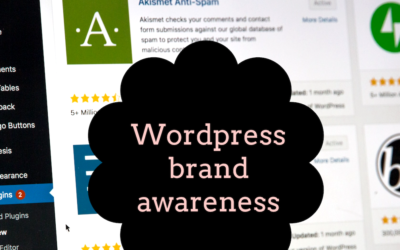PHP 7.4 is Reaching Its End of Life: What You Need to Know Before Upgrading
PHP is the world’s most popular server-side programming language, and its latest version – PHP 7.4 – is now reaching its end of life (EOL). As a web developer or business owner, you need to understand what this means and how to upgrade your system to the latest version. You can upgrade to PHP 8.1 with our Hosting Professional without any additional costs. This article will explain what the end of life for PHP 7.4 means, the risks associated with continuing to use the older version, and how to upgrade successfully. We’ll also discuss the benefits of upgrading and the features of the latest version that make it worth the effort. By the end of this article, you’ll have the information you need to make an informed decision and upgrade with confidence.
What does the end of life for PHP 7.4 mean?
An end of life (EOL) notice is a standardized notice that indicates the date when a particular software product or service will be discontinued. The EOL notice for PHP 7.4 indicates that, as of November 30, 2022, support for this version will end. This means that after this date, there will be no more bug fixes, security patches, or new updates for this older version of PHP. After this date, PHP 7.4 will become vulnerable to security risks and bugs that won’t be fixed, and it will not be possible to host any new websites with this version. PHP 7.4 is reaching its EOL earlier than expected as a result of increased interest in PHP and the speed at which new versions are rolling out. EOL is a standard practice in the software industry and should not be confused with the end of PHP itself. After the EOL date, the software will still work, but it will be extremely vulnerable to security risks and bugs that won’t be fixed. You’ll want to upgrade to the latest version as soon as possible to continue benefiting from the newest security measures and bug fixes.
Risks associated with continuing to use the older version
These are some of the risks associated with continuing to use the older version of PHP. – Increased risk of security breaches: With newer versions of PHP, admins and developers can protect web servers from common attacks like remote code executions and SQL injections. If you continue to use an older version, you’ll be at risk of malicious attacks that will infect your system and steal sensitive data. – Brittle code: As new versions of PHP roll out, the team behind the software is continuing to improve its core functionality. Newer versions include changes in syntax and functionality that are not compatible with older versions. With the older version, you may find that your code is becoming increasingly brittle and difficult to maintain. – Loss of functionality: With newer versions of PHP, you can use exciting new features, like native support for artificial intelligence (AI) services. With older versions, you’ll be missing out on all these exciting new features and may find that you’re limited in the functionality of your applications. – Increased development costs: As PHP releases new versions, a growing number of businesses and developers are upgrading to the latest version. If you continue to use the older version, you’ll find that fewer developers are available to work on your projects. You may also find that the cost of hiring and retaining developers increases as they become more in demand and receive higher salaries.
Benefits of upgrading
There are many benefits of upgrading from the older version of PHP to the latest version. With the latest version, you’ll enjoy improved functionality, performance, and security. You’ll also find it easier to hire and retain developers, and you’ll be able to take advantage of exciting new features like AI integrations. Here are some of the benefits of upgrading to PHP 7.6. – Improved functionality: Newer versions of PHP bring exciting new features, like native AI integrations, that are not available in older versions. You’ll be able to use new features to transform your business and gain an edge in the market. – Improved performance: The latest version of PHP boasts improved performance over older versions, which can result in faster load times for your website. – Improved security: With the latest version of PHP, you can take advantage of new security measures, like strict naming conventions for variables, that are not available in older versions. – Easier to hire and retain developers: Developers prefer to work with the latest version of PHP, and there is a growing shortage of developers who are capable of working with older versions. You’ll be able to hire and retain a high-quality team of developers more easily if you upgrade to the latest version.
Features of the latest version that make it worth the effort
There are a number of exciting new features that make PHP 7.6 a worthy upgrade from PHP 7.4, and these features will only improve in future versions. Here are some of the features of the latest version that make it worth the effort. – Improved performance: The latest version of PHP boasts significantly improved performance over the previous version with a 15% increase in speed. – Upgraded core functionality: Newer versions of PHP roll out with new functionality, like strict naming conventions for variables, that improve the overall functionality of the software. – Additional functionality: Newer versions of PHP bring additional functionality that were not available in the older versions. This includes native AI integrations and support for object-oriented programming functionality. – Upgraded security: Newer versions of PHP bring new security measures, like strict naming conventions for variables, that make it more difficult to conduct remote code executions and SQL injections. – New features: New versions of PHP are rolling out with exciting new features, like native AI integrations, that are not available in older versions.
How to make an informed decision and upgrade with confidence
When deciding whether to upgrade, you’ll need to assess the benefits of upgrading against the costs and risks of downtime and potential bugs. If you decide to upgrade, you’ll want to make sure you do it properly to minimize any potential risks. Here are some steps you can take to make sure the process goes smoothly. – Plan for downtime: Before you begin the process of upgrading to the latest version of PHP, create a plan for dealing with any potential downtime. If there is any code that needs to be rewritten before the upgrade, make sure to do it before beginning the upgrade process. – Test the latest version on a staging server: Before you begin the process of upgrading your production server, create a staging server where you can test the latest version and make sure everything is working as intended. This will enable you to identify and fix any potential issues before they occur on your production server. – Make any necessary code changes: Make sure to review any core code or custom code that is running on your server. If you notice any changes are necessary, make the changes before the upgrade so that the transition between versions is as seamless as possible. – Check for compatibility with any third-party integrations: Before you proceed with the upgrade, make sure that all third-party integrations are compatible with the latest version of PHP. If you discover that an integration is not compatible, you’ll need to reach out to the third-party provider for help or find an alternative.
Conclusion
The latest version of PHP is now reaching its EOL, and businesses and developers need to upgrade from the older version as soon as possible to avoid security risks and bugs that won’t be fixed. There are many benefits to. Check our hosting plan Hosting Pro, or contact us in order to upgrade your website for free to PHP 8.1.






